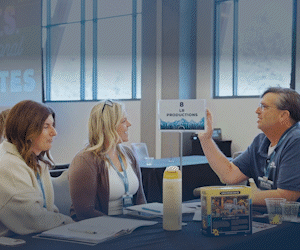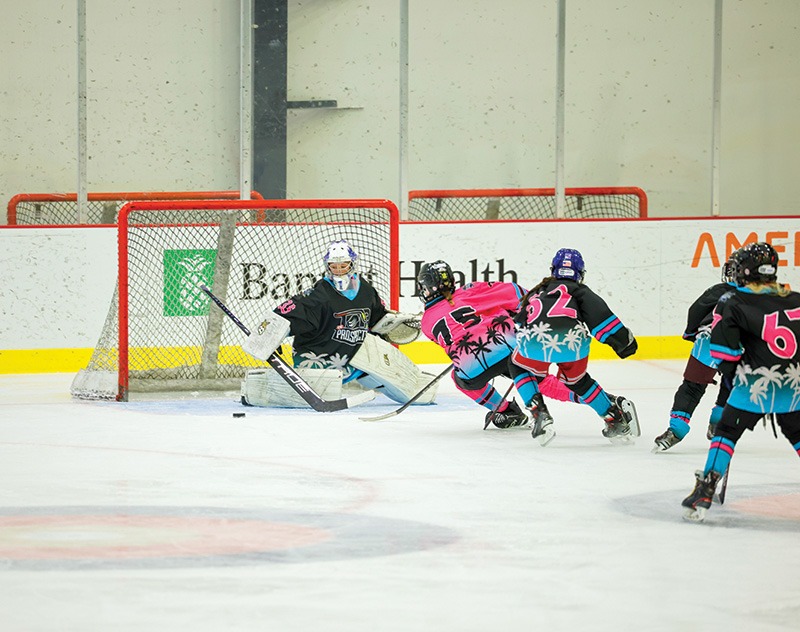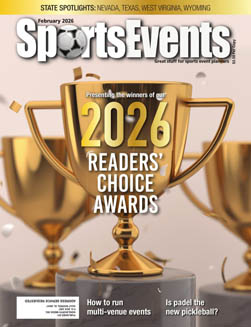
For event organizers looking to stretch budgets and streamline logistics, partnering with local schools can be a game changer. From gymnasiums and turf fields to ample parking and ready-made volunteer pools, school campuses offer a range of built-in advantages. But making the most of these resources requires more than just a phone call to the front office. In this practical, tip-packed guide, we’ll break down how to build strong school partnerships so you can plan smarter and host standout events with less stress.
Start early
When it comes to working with schools as event partners, early planning isn’t just helpful—it’s essential. School calendars fill up fast with academic, athletic, and extracurricular commitments, so reaching out well in advance is the best way to secure your desired date and space. “There’s no such thing as being too early,” stresses John Sgromolo, director of athletics for the St. Johns Country Day School, an independent private school in Ocean Park, Fla.
Ideally, event organizers should start reaching out one year in advance, notes Lance Carter, executive director of athletics for the Katy Independent School District in Katy, Tx. With school calendars packed full of classes, sports, testing, and community events, venue availability can be limited and competitive. “You’re not just working around our schedule—you’re also competing with other outside organizations who are looking for the same space,” Carter explains. “We have reservations that are reoccurring from year to year. So the earlier you get on our radar, the better chance you have to secure your ideal date and location, and to work through the necessary approvals.”
Another reason to start early is the contract. Once a school agrees in principle, you still have to build in time for paperwork—and that part often moves slower than expected. “Most school districts will want their legal department to review the agreement,” says Sgromolo, “and the event organizer probably will too.” That back-and-forth can easily stretch over several weeks. Starting the process early ensures there’s enough runway for those conversations to happen without pushing up against your event deadline.

Find the gatekeeper
Knowing who to contact can make or break your planning timeline. In most cases, the athletic director is the best first point of contact. Athletic directors often oversee the use of school sports facilities and are familiar with both the school’s schedule and the broader policies around external rentals. They can also help determine if your event fits within the school’s guidelines and steer you toward the right approvals. “The relationship should begin in our office,” notes Jay Getty, athletic director of Hagerty High School in Oviedo, Fla. “Ultimately, you’ve got to get some
buy-in from the top because, in some cases, they are your partner in helping sell the idea to the school team that’s going to benefit.”
As Getty notes, the athletic director can loop in other key players who are essential for hosting the event. “For example, if you’re looking to book a facility for a wrestling tournament, I need to be able to go to my wrestling coach and explain why they could benefit from being involved and hosting the event,” he adds. “I have to create buy-in from the teams because that’s your staffing for the event.”
Reaching out to the athletic director first can also save event organizers valuable time. Many schools use an online booking system for reserving their events, but starting with the athletic director first can help determine if dates are feasible before spending time entering information into the scheduling system, adds Andre Walker, senior executive director of athletics and UIL compliance for the Houston Independent School District. “We use [the booking system] Facilitron,” he says, “but we still encourage people to reach out to us first to check dates. If it looks like it’s available, we’ll then direct them to the online system.”

Perfect your pitch
Once an event organizer identifies the right person to reach out to, it’s time to give them a reason to say yes. To do so, organizers need to present a clear, compelling case from the start. That means being thorough, detailed, and prepared. “The more information you can give us upfront, the better,” says Carter. That includes not just dates and times, but also things like crowd size, setup needs, security plans, and who’s managing the event. A polished, professional pitch shows the school that you’re serious—and makes it easier for them to evaluate whether the event is a good fit. “Try to eliminate any questions the facility might have. The more information organizers can provide on the front end, the faster the process can go because we don’t have to go back and forth.”
It’s also smart to be ready with references, adds Joleen Cacciatore, executive director of the Gainesville Sports Commission. “It’s always great to have references,” she explains. “If the event organizer has hosted that event in another county or city, having a reference from that event and how you did it before will help make the facility manager or athletic director feel more comfortable.”
Even if references aren’t available, sharing the history of the event and details about how you’ve hosted it elsewhere is beneficial, too, adds Walker. “It’s important to let the school know you and your event have some kind of history,” he says. “Sharing that documentation shows you’re a bona fide group.”
Most school districts will do their due diligence before signing off, adds Carter, especially if the event involves a large crowd or complex logistics. “We research every potential reservation that comes down the pipeline,” he says. “We research the organization to find out what they are about and if they align with our community and the goals and vision of our school district.”

Meet in person
When it comes to building trust and getting your foot in the door, nothing beats showing up. “Go visit. Go show your face with your detailed plan,” says Walker. “That face-to-face is always great because it shows you’re serious—and that you value the people who can help make your event happen.”
Many athletic departments are juggling a lot, and long emails can get lost in the shuffle. A personal meeting, phone call, or introduction through a mutual contact can make all the difference. “We don’t always have the time to read a mammoth email from someone,” says Sgromolo, “so having a conversation via phone or scheduling an in-person meeting helps tremendously. It can be way more successful.”
Highlight mutual benefits
When working with schools, sometimes a little out-of-the-box thinking can go a long way. While there’s often no getting around the rental fee—many school districts have set costs that are non-negotiable—event organizers can still make a strong case for why their event should be welcomed. In fact, event organizers who come in with a mindset of mutual benefit often find more doors opening. For example, Sgromolo shares that a public school district once decreased some fees because the football kicking camp being held at the school gave the school five free camp admissions. “The outside group still had to cover some fees, but they did get a decreased fee based on the value of the sponsorships,” he explained.
Trading services is another collaborative gesture that won’t necessarily replace the facility rental fee but can help foster a positive relationship and leave a lasting impression that pays off in the long run. “If you can find a reciprocal use scenario and can trade, there’s always a need,” adds Getty. “For example, if you’re an event organizer and have a connection to a field space, a school’s athletic seasons always overlap, so if you come in wanting to rent a school facility, but you can also help the school rent the field space, then it’s great for both sides.”
One of the best ways to build lasting relationships with schools is to follow up after the event—and not just with a thank-you. If the event was a success and the event organizer is hoping to return in the future, they should consider giving back in a meaningful way. Something as simple as noticing worn-down field equipment and offering to replace it can speak volumes, Getty shares. At the end of their season, the youth football program Pop Warner bought Getty’s school a set of down markers, he says. “In building a relationship, that goes a long way because they showed they cared to support the programs at the school.”

Use all available resources
One of the smartest moves an event organizer can make early on is reaching out to the local Convention and Visitors Bureau or sports commission. These organizations are there for a reason—to support events in their community. From helping you navigate school district contacts to identifying the right facility or assisting with logistics like hotel blocks, transportation, and even funding opportunities, they can be a powerful ally, says Cacciatore. “We know the facilities and those that run them, so we can help an event interested in coming here find the right one,” she adds. “We can also help with event support, if that’s needed, such as securing volunteers.”
Danielle Hennessy, director of events and marketing for the John T. Rhodes Myrtle Beach Sports Center in Myrtle Beach, S.C., echoes the suggestion to ask for help from local organizations. Hennessy and the team at the sports center also help event organizers book local schools due to an agreement between the city and the county schools. “We can reach out to the schools for the event owner and find out which venues have availability,” Hennessy explains. “We also have options to provide staffing at these facilities.” And with that kind of support and partnership, your school-based event is bound to succeed.











